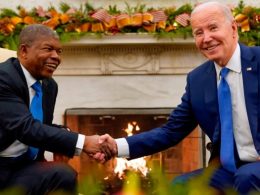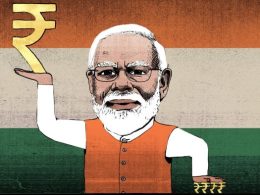Unlock the White House Watch newsletter for free
Your guide to what the 2024 US election means for Washington and the world
Trade is complicated, what with all those products and parts endlessly criss-crossing borders. But tariffs are simple! Especially when they come in big round numbers. For an incoming US president keen to exert his authority, what could be more straightforward than slapping 25 per cent levies on absolutely everything coming from Mexico and Canada?
Needless to say, the reality of such a blanket tariff policy, proposed by Donald Trump via social media, would be chaotic and largely negative. The US’s neighbours are its two biggest trade partners. Jobs have been created over many decades; prices lowered. Investors unsurprisingly reacted on Tuesday by selling off shares in companies with cross-border supply chains, like Ford and General Motors.
Offloading automotive stocks, or the Mexican peso, seems straightforward. But in reality, positioning portfolios for trade war is a head-scratcher. For one, tariffs that start out broad can become narrow thanks to carve-outs and exceptions. And the more intricate a supply chain, the more parties along the line there are to absorb part of the cost increase before it reaches the consumer.
Moreover, policies designed to batter trade can initially stimulate it. Think of the Covid toilet-paper-hoarding effect, but applied to everything from steel to baked goods. When Trump last placed tariffs on Canadian steel and aluminium, the initial result was a rise in Canuck exports of those products in the region of 20 per cent, according to numbers crunched by the Canadian Chamber of Commerce, and then a prolonged slump.
What makes this round of tariffs particularly hard to translate into market moves is that what has been presented as one thing might turn into another. Trump says his goal is to stop flows of fentanyl and illegal migrants across the borders. But since Canada supplies little of either, the compromises it would be likely to offer could touch on any number of industries, from internet services to dairy to so-called critical minerals.
Perhaps what Trump will really achieve by threatening blanket tariffs is a renegotiation of the US Mexico Canada Agreement, a descendent of what was once called Nafta. The effect of that, though, on companies across those three countries will not be visible for years.
Today, however, the deceptive simplicity of tariffs makes them easy to wheel out as a negotiating tactic. Besides, the majority of Americans think the US has lost more than it has gained from trade, the Pew Research Center found in April. There is therefore little to lose from threatening to throw importers and exporters under the bus — even at the risk of giving investors a nasty case of road rage.
Source link









